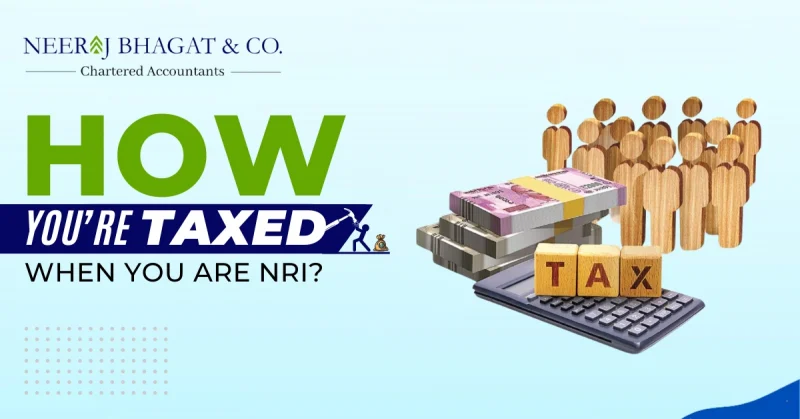How you’re taxed when you are NRI?
As an NRI, your tax obligations can vary based on your residency status and the nature of your income. Let’s explore the taxation scenarios for NRIs:
a. The resident person on a foreign temporary assignment
When an Indian resident is sent on a temporary assignment abroad, their tax liability may shift depending on the duration of their stay. Generally, if the assignment exceeds a certain period, the individual may be considered an NRI for tax purposes. This transition can affect the taxation of their global income.
b. Living in a foreign country
NRIs living in a foreign country are typically subject to taxation laws of that country. However, India also imposes taxes on income generated within its jurisdiction, such as rental income from property in India or income from investments. Double taxation avoidance agreements (DTAA) may help alleviate this burden.
c. Resident Person recently relocated overseas
For tax purposes, those who have recently moved abroad but nevertheless have strong ties to India may still be deemed residents. In these situations, unless they are excluded from taxation under certain laws, their worldwide income is taxable in India. A thorough knowledge of tax rules and effective planning are essential for reducing tax payments.
How Can NRIs Avoid Double Taxation?
When the same income is subject to taxes in two separate jurisdictions, it is known as double taxation. NRIs can lessen this in a number of ways:
How NRIs may claim Benefits under DTAA
In order to protect NRIs from double taxation and to provide them relief, the DTAA is essential. Comprehending its complexities is crucial to efficiently claiming benefits:
a. Understanding DTAA
A deal known as the Digital Trade Agreement (DTAA) was reached by two nations to stop tax evasion and double taxation. It distributes taxation rights and offers conflict resolution procedures. The terms of the DTAA between India and the nation in which they live or work must be known to NRIs.
b. DTAA rates
The tax rates that apply to various forms of income, including dividends, interest, royalties, and capital gains, are outlined in the DTAA. NRIs may be eligible for reduced tax rates or exemptions based on the specific agreement between India and the other nation.
c. Types of income under DTAA
The DTAA protects against a variety of income sources, such as pensions, capital gains, business profits, and income from employment. Rules pertaining to eligibility for benefits and taxation may differ for each category.
d. DTAA methods
The tax credit method and the exemption method are the two main strategies used by DTAA to get rid of double taxation. The terms of the agreement and the taxpayer’s situation determine which approach is best.
e. Countries with whom India has a DTAA
India has negotiated free trade agreements (DTAAs) with a number of nations to promote investment and cross-border trade. To maximise their tax planning, NRIs should educate themselves on the DTAA provisions that apply to them and get competent assistance.
Conclusion
Foreign agreements, income sources, and residency status all have an impact on the complicated topic of taxation for non-resident individuals. To reduce tax obligations and optimise benefits for non-resident individuals, Neeraj Bhagat & Co. stresses the significance of proactive tax planning and compliance. NRIs can successfully manage the complexities of international taxation by being aware of the subtleties of taxation and making use of DTAA.

